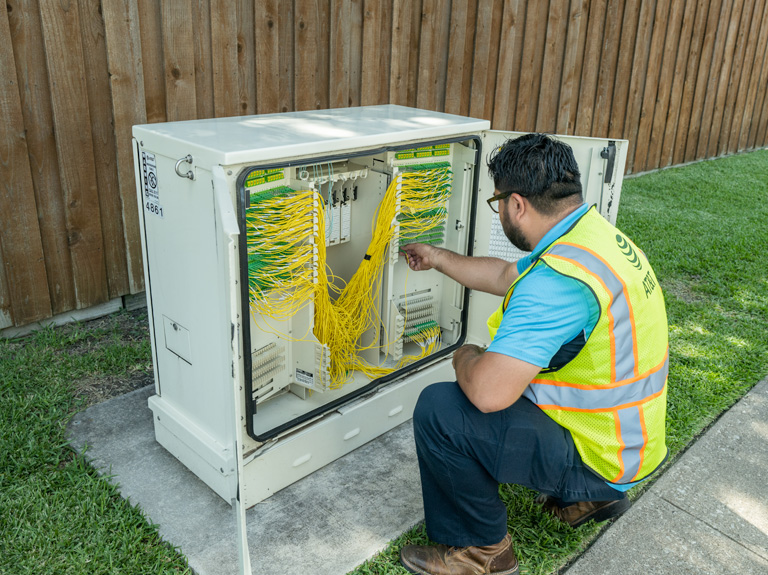Mobile Megaphone: Data Usage Across Pro Football Stadiums

Over the past six years, AT&T has invested more capital into the U.S. economy than any other public company. Part of the reason behind this investment has been to meet rapid mobile network data growth. In fact, mobile data traffic on AT&T’s national wireless network increased more than 50,000 percent from January 2007 through December 2013. A portion of this growth and investment has gone into improvements at stadiums and other venues across the country. Investing in our wireless network continues to be a priority. Investment in our wireless and wireline networks for 2014 is expected to be in the $21 billion range.
Coverage at many large sports venues is accomplished using Distributed Antenna Systems, or DAS, which are networks of many small antennas that enhance wireless service within an area or building. DAS is able to provide enhanced wireless coverage to customers in spaces where large crowds or massive concrete bowls might prevent a good wireless experience on the macro network.
Smartphones are now an essential part of many fans’ gameday experience as they help tell the story of their favorite personal moments from the game with family and friends back home and at other stadiums across the country. AT&T recognized the need to further prioritize these specialty solutions back in 2010 when it formed AT&T’s Antenna Solutions Group an internal organization that manages the full end-to-end installation of DAS. Here are some quick facts about our DAS footprint:
- AT&T owns or is on third-party DAS at more than 55 professional and college football stadiums across the U.S.
- AT&T has DAS technology on-air at more than 90 percent of all professional football venues
- Our network is currently on-air via DAS at more than 800 venue locations including sports venues, convention centers, hotels, shopping malls, airports, high-rise corporate facilities and more.
- 2014 professional football championship in NYC total data usage was 624GB – this is more than a 60-percent increase in total data traffic compared to the 2013 game in New Orleans.

Data from opening weekend of professional football displayed some interesting regional trends, eye-popping total traffic numbers from marquee venues and year-over-year traffic growth that supports the trend of more and more mobile usage at stadiums:
Year-over-Year Professional Mobile Data Increase
- 2014 home opener – 361GB average per venue
- 2013 season average – 227GB average per venue
- 2013 season average to 2014 season opener is a year-over-year increase of more than 59 percent
- 2013 season opener to 2014 season opener is a year-over-year increase of more than 58 percent
Opening Weekend Mobile Data Usage Professional vs. Collegiate
- 2014 professional season opener – 361GB average per venue
- 2014 collegiate season opener – 288GB average per venue

Top 5 Opening Weekend Professional Venues by Total Mobile Data
- Miami, FL – 1035GB
- Equivalent to more than 2.9 million social media post with photos
- Peak hour – 1-2pm ET – 146GB
- Dallas, TX – 889GB
- Equivalent to more than 2.5 million social media post with photos
- Peak hour – 2-3pm CT – 158GB
- Atlanta, GA – 696GB
- Equivalent to nearly 2 million social media post with photos
- Peak hour – 2-3pm ET – 159GB
- Chicago, IL – 452GB
- Equivalent to nearly 1.3 million social media post with photos
- Peak hour – 1-2pm CT – 107GB
- Pittsburgh, PA – 385GB
- Equivalent to more than 1.1 million social media post with photos
- Peak hour – 2-3pm ET – 83GB
Caveats:
- All figures include only data traffic seen on AT&T’s venue-specific mobile network.
- All data metrics come from only venues with a DAS where AT&T’s mobile network is on-air. These metrics are not comprehensive of every game played during the opening weekend for professional or college football.
- This data is compiled from 16 professional football stadiums and 25 division one college football stadiums that had opening week home games where AT&T is on-air on a DAS.
- All 2013 season average data is compiled from only venues with a DAS where AT&T’s mobile network was on-air and games where data was tracked and available.


